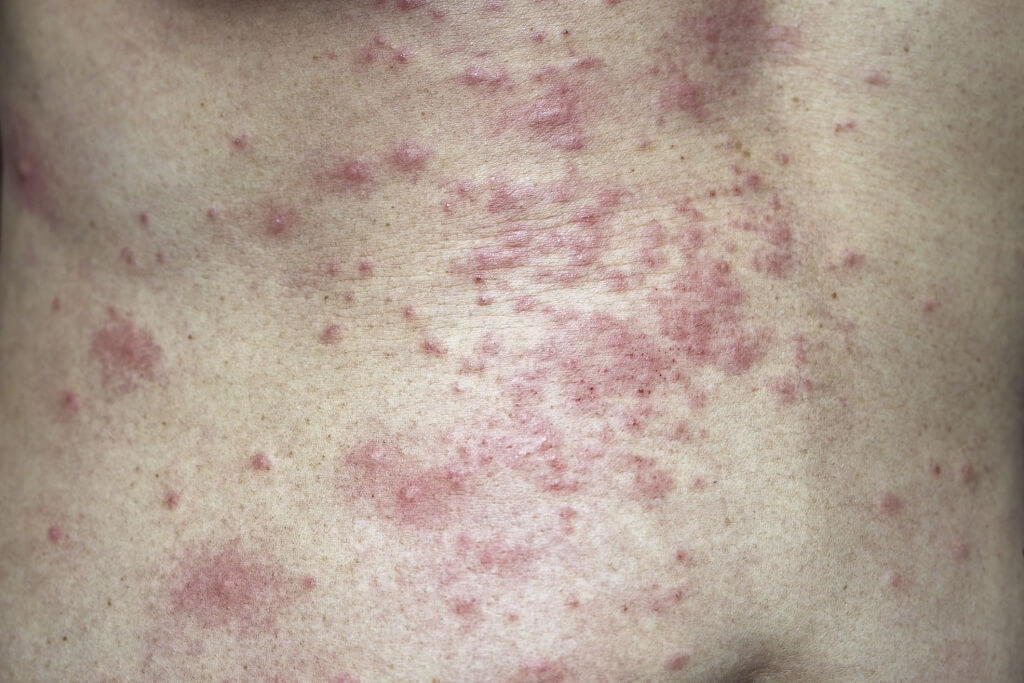According to research published in the September edition of the Journal of the American Academy of Dermatology, atopic dermatitis, a family history of psoriasis, and early childhood skin viral, bacterial, and fungal infections are all linked to the development of pediatric psoriasis
Pediatric Psoriasis And Skin Infections
Skin infections are very common and all of them are not to be confused with pediatric psoriasis. It is suggested to get tested periodically to identify and treat any infection before it is too late.

From 2000 to 2017, Yi-Ju Chen, M.D., Ph.D., of Taiwan’s Taichung Veterans General Hospital, and colleagues conducted a national nested case-control research. The National Health Insurance Research Database of Taiwan yielded 1,527 patients with pediatric psoriasis, who were matched with 15,270 people who did not have psoriasis.
Skin is a visible part of the human body and hence any patch or spot may attract the unwanted attention of people. In childhood, many kids have to face skin infections where either parent does not know the situation or remain absent-minded and one has to suffer. It may also be an allergy caused by various factors which parents may not be aware of. Psoriasis is considered a hereditary disease where it flows from a family of either of the parents.
Atopic dermatitis and a family history of psoriasis, particularly that of the mother or another first-degree relative, were revealed to be variables independently linked with pediatric psoriasis on multivariate analysis. This research has come up with some surprising facts that may save more kids from this trouble now.
In the first two years of life, skin viral and bacterial infections, as well as fungal infections, were found to have significant correlations with pediatric psoriasis. In the case of systemic antibiotic exposure, no connection was seen. These results were similar across periods and sensitivity studies.
“Early skin and fungal infections are linked to the development of pediatric psoriasis,” the authors write. “It’s worth looking into the function of early-life microbiome dysbiosis in the etiology of pediatric psoriasis.”According to research recently published in the Journal of the American Academy of Dermatology, skin infections in the first two years of life are linked to pediatric psoriasis.
These skin infections might not seem like a huge risk but leaving them untreated is a huge gamble An investigation of the influence of infantile infection and antibiotic exposure on pediatric psoriasis development was carried out by Yi-Ju Chen, M.D., Ph.D., from the Taichung Veterans General Hospital in Taipei, Taiwan, and colleagues. During the study, researchers identified 1,527 patients who had severe childhood psoriasis as well as 15,270 individuals who were healthy controls.
The researchers discovered that the average age in both groups was 9.9 ± 3.7 years. Atopic dermatitis and a family history of psoriasis were found to have independent correlations with pediatric psoriasis in a multivariate analysis. This was also particularly seen in mothers or other first-degree relatives. This research is still not considered to be extremely promising as there are various other variables that can be considered. The results from this research do not guarantee any strong statements.
In the first two years of life, skin viral and bacterial infections, as well as fungal infections, were found to have significant correlations with pediatric psoriasis. In the case of systemic antibiotic exposure, no connection was seen. The researchers write, “Our data suggest that early skin and fungal infections are related to the development of pediatric psoriasis.” There is still a lot of studies which is to be done but the results to date are promising, further study can reveal more facts about the same and help in the identification, treatment, and cure.